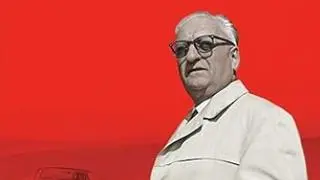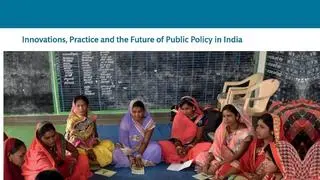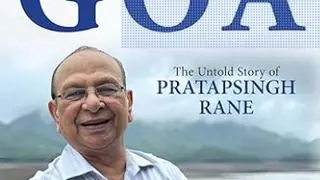The word village evokes different meanings to different people. Some of them believe that it’s the place where we can live in peace — an ideal place where people live in complete harmony.
Some others feel that the backbone of villages is broken as people have migrated in lakhs to urban areas in search of livelihood.
These and many other images of villages are often based on rhetoric rather than empirical evidence, leading to misconstrued understanding.
Surinder S Jodhka’s book The Indian Village – Rural Lives in the 21st Century presents an objective assessment of villages and dispels several myths around the idea of a village after examining the ‘popular notions’ surrounding it.
The numbers game
A Professor of Sociology at Jawaharlal Nehru University, Jodhka gives us the anatomy of a village, shedding light on its socio-economic and cultural dynamics. He succeeds in generating interest on the topic by telling us why it is important to understand villages – the absolute number of people in villages.
Quoting 2011 Census numbers, he states that over 83 crore people, or 69 per cent of the country’s population, live in rural areas. They form the bulk of the 60-70 crore workers in the form of temporary migrants.
Variant views
This book provides a 360-degree view of the villages, starting from how Gandhiji, Nehru, and Ambedkar looked at villages and how they differed from each other to the march of crores of people back to villages during the lockdown; and to the recent protests by thousands of farmers against the three farm laws.
He says Gandhiji built his narrative using the binary of village and city to promote an anti-colonial ideology.
Gandhiji felt that villages represented the soul of the country and pitched for the restoration of villages. “Our cities are not India. India lives in her 7.5 lakh villages and the cities live upon the villages,” he said.
Though a Gandhiji loyalist, Nehru differed with him on his views about the village. He saw no virtue in reviving the traditional social structure and pitched for the transformation of villages through economic policies and technology. But Ambedkar had mercilessly attacked the aura around villages. “He had no sympathy for village life,” the author says.
“I hold that these village republics have been the ruination of India… What is the village but a sink of localism, a den of ignorance, narrow-mindedness, and communalism,” Amkedkar had said.
Stating that villages across the country are changing at different paces, he points out that not being, “a Dalit and not being landless still makes a difference in one’s prospects of social and economic mobility in rural India. Caste status also matters.”
Myths dispelled
Jodhka has done a great job of piecing together different arguments on villages and dispelling myths by presenting the facts. According to him, the village lives on. “The village has not given up on itself,” he points out.
As a reporter covering agriculture for over 25 years, this book is a good source for understanding villages. Jodhka quotes extensively from social scientists, historians, and economists. However, there is one missing element — the understanding of villages through the lens of alternative politics.
Communist leader Kondapalli Seetharamaiah came out with an empirical study — Agrarian Revolution in the early 1980s, dissecting the economy of villages and explaining how farmers get a raw deal, pushing them to indebtedness.
Though dated, it gives a different construct of the Indian village, looking at it with a Marxist-Leninist outlook. The inclusion of such views would have made the work a complete treatise on the Indian village.
Book details
Title: The Indian Village – Rural Lives in the 21st Century
Author: Surinder S. Jodhka
Publisher: Aleph Book Company
Price: ₹799
Amazon link:
https://www.amazon.in/Indian-Village-Rural-Lives-Century/dp/939104719X/ref=sr_1_1?crid=169K0Y9XWPTH2&dib=eyJ2IjoiMSJ9.0NCNy7iXgwiQqvSEGxl9BhKCb_FdUhpcwNWJ4C9QXh0gdoYChZEAHyUlA5ky0CAx3PgU-FJL-XWd5uHPA7y1dI8NTwX74isVO2c4Bb32cGcTVz_kxjpd_GJp1ZQmDjxgMjgS7U-zN7JjGkPhARK5yKVKfU0mRzzc_xGPFodCZ4p8VolfvbCf9UKN3bv-z9JMoMkc1pzXaTC-BgCb25w_Uw_jBE0CqUvddKRr5Q0myEU.t0luxPdsZmYEZxBgIZMfbN_sZGqneb8QKjmLLYF4XZM&dib_tag=se&keywords=surinder+jodhka&qid=1713535356&sprefix=Surinder+Jod%2Caps%2C245&sr=8-1







